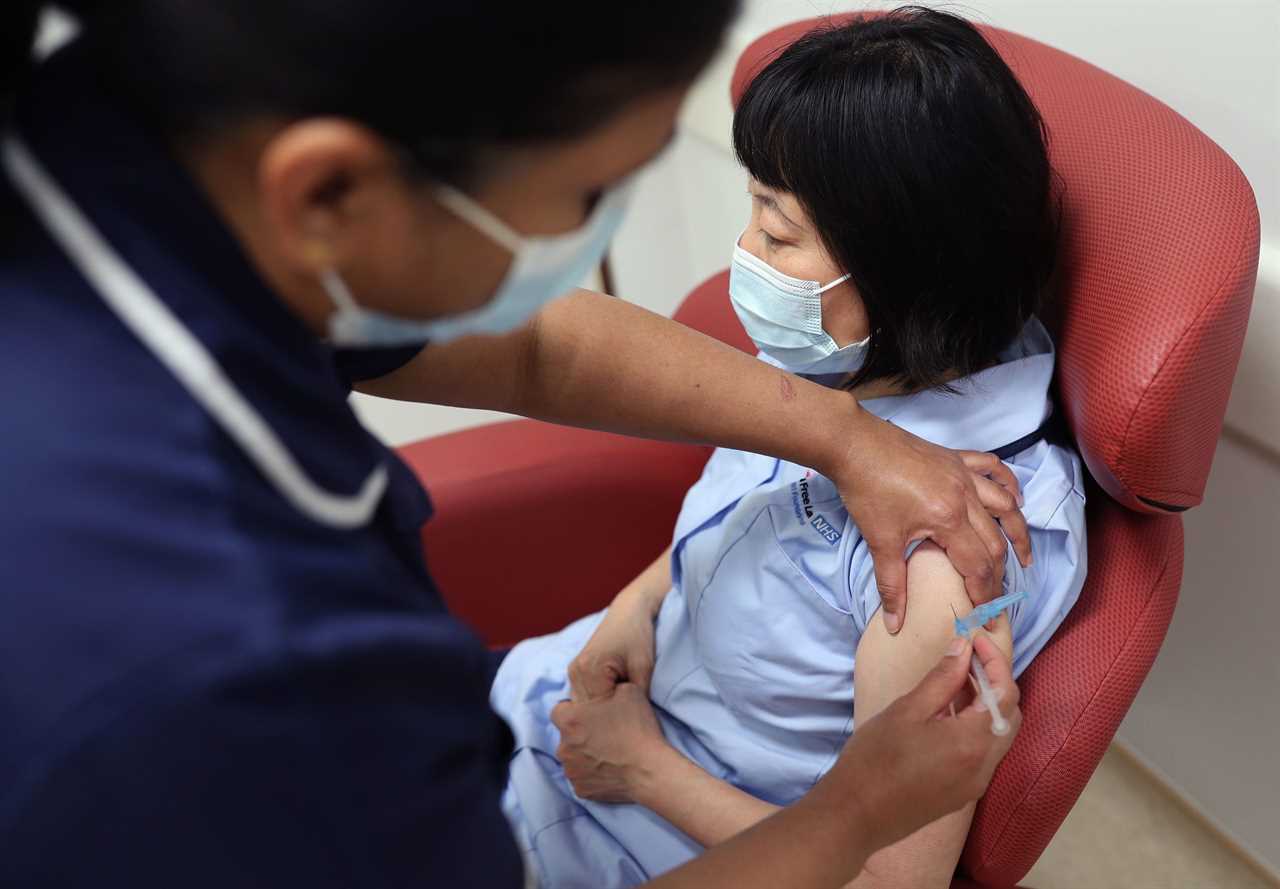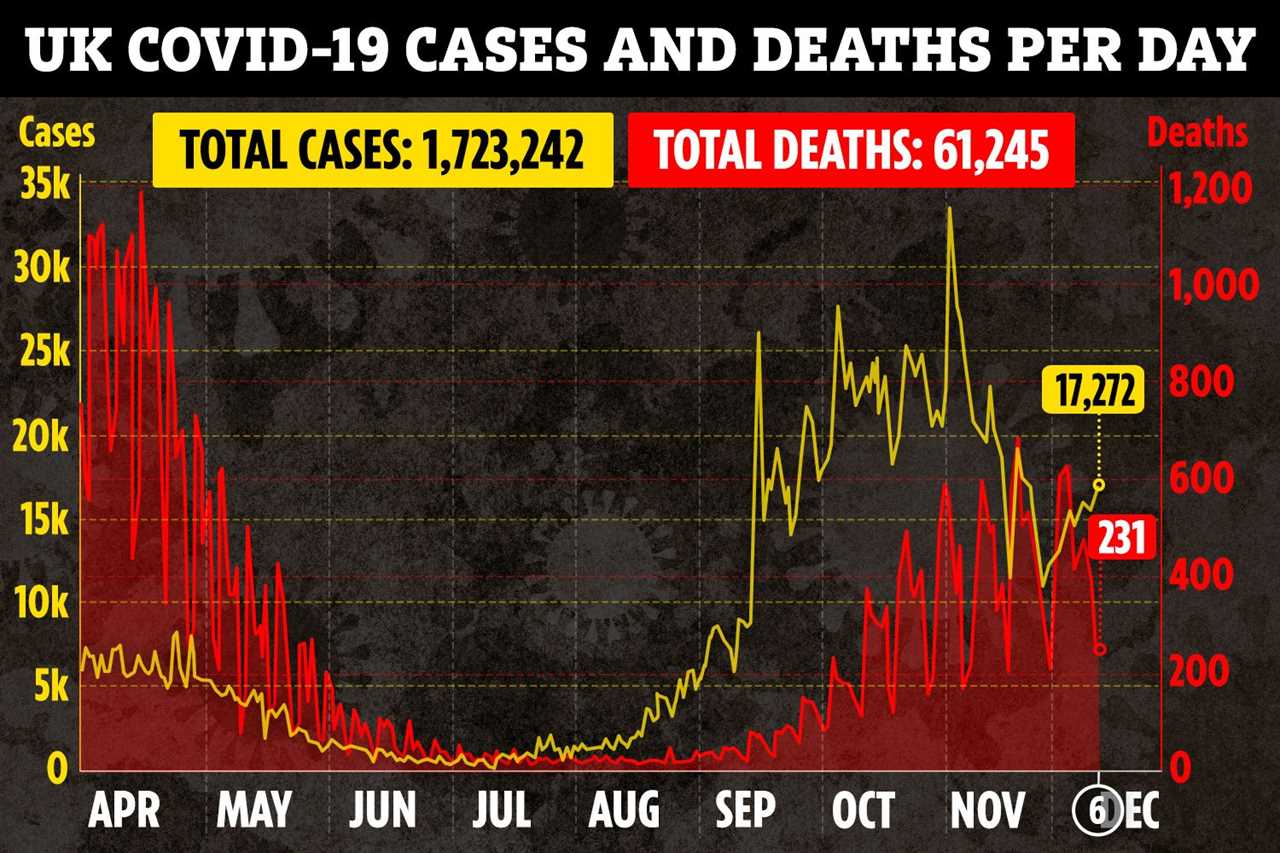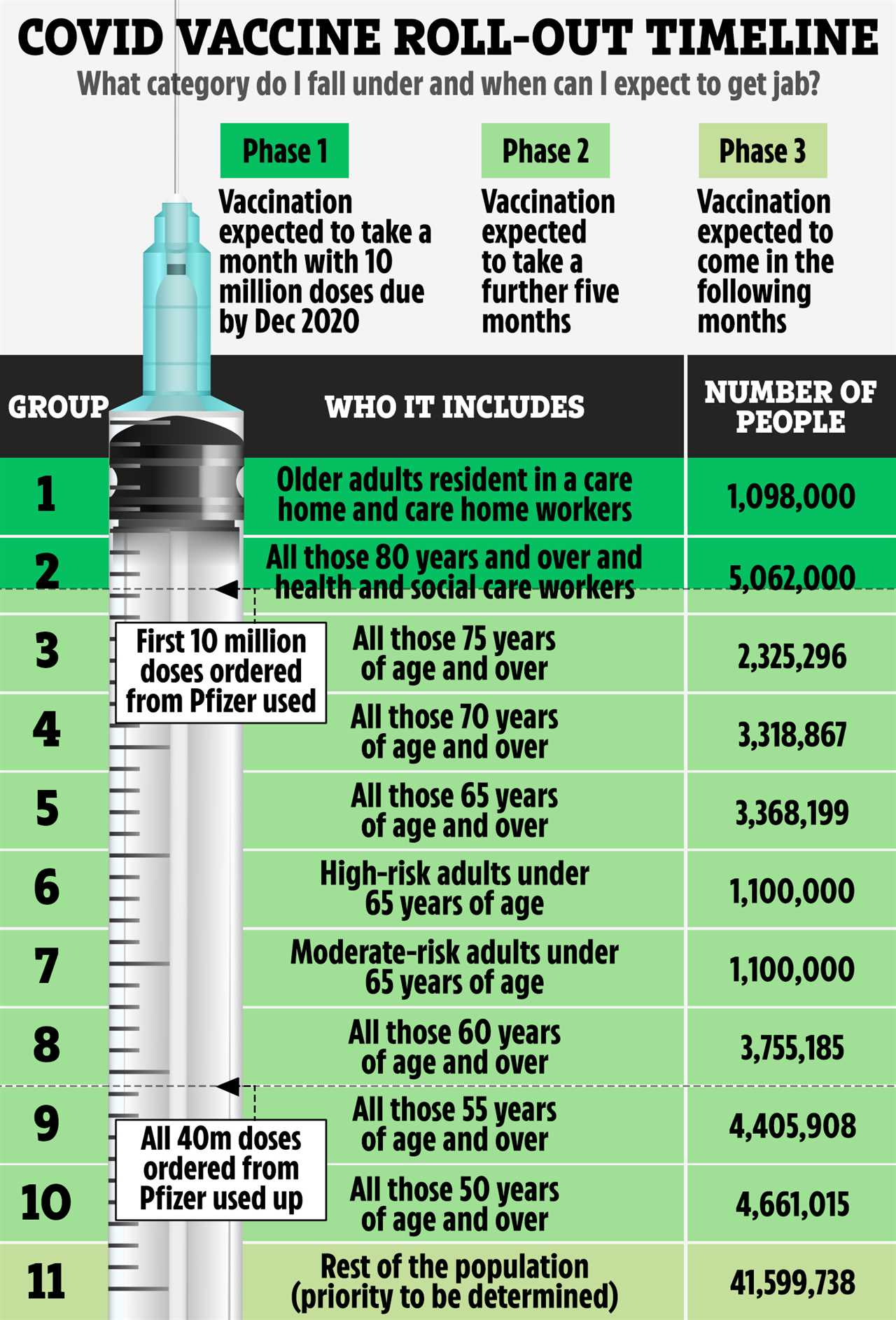PEOPLE over 80 who’ve not been contacted about the Covid vaccine have been told not to panic – as most won’t get the jab until the New Year, a health official has said.
Vaccines will be rolled out at dozens of hospital hubs from tomorrow – which has been dubbed “V-Day” by Health Secretary Matt Hancock.

Those over 80, care home staff and NHS workers who are at higher risk are at the front of the queue for the Pfizer/BioNTech jab.
Chris Hopson, chief executive of NHS Providers, said people should be assured they have not been forgotten if they haven’t received a letter or phone call about the jab.
“I don’t think people should expect anything over the next few days because the reality is, for the vast, vast, vast majority of people this will be done in January, February, March,” he said.
“And the one thing that we don’t want people to get anxious about or concerned about is ‘Where’s my letter?’ in December.”
‘WEEKS AWAY’
He added: “People really shouldn’t worry if they’re over 80 and they haven’t had a letter.
“I’m sure there will be communications over the next few weeks that will tell people how quickly we are getting through the over-80s, and there will be plenty of communications to say, at the right point, if you haven’t had a letter then you should talk to your GP, but we are many weeks away from that.
“So as I said people just need to hang fire and wait for a proactive communication.
“If that hasn’t happened, don’t worry, we haven’t forgotten you, and we’ll certainly tell you at the point at which you need to start worrying if you haven’t been contacted, but that will be many, many weeks away.”

Professor Stephen Powis, NHS national medical director, has also said the distribution of the vaccine would be a “marathon not a sprint”.
Croydon University Hospital in south London was one of the first hospitals to take delivery of the vaccine over the weekend, with similar scenes unfolding around the country ahead of the rollout.
The UK has ordered 40 million doses of the Pfizer/BioNTech jab, enough to vaccinate 20 million people, as people need to receive two doses.
There are 800,000 doses in the first tranche, meaning 400,000 people will be vaccinated initially.
CARE HOME CHALLENGES
There are challenges to overcome with vaccinating care home residents despite them being at the top of the priority list, but Mr Hopson said this would begin in around a week’s time and would be led by primary care networks.
Logistical issues mean there are difficulties in delivering the Pfizer jab to residents, as it needs to be stored at minus 70C before being thawed out and can only be moved up to four times within that cold chain before being used.
The vaccine boxes containing 975 doses will need to be split so they can be taken to care homes.
Dr June Raine, chief executive of the Medicines and Healthcare products Regulatory Agency (MHRA), was asked when the MHRA would approve the breaking up of the vaccine packs into smaller batches for care homes.

She told BBC’s Andrew Marr Show: “We have approved how the vaccine can be put into the smaller packs, but obviously what we’re doing is giving advice and guidance on how well and carefully that is done.”
It has been confirmed care home residents in Scotland will be able to receive the vaccine from December 14.
The distribution of the vaccine across the UK is being undertaken by Public Health England and the NHS in England, Scotland, Wales and Northern Ireland through systems specially adapted from those used for the national immunisation programmes.
On arrival in Croydon, the batch of vaccines was unboxed by a pharmacy technician wearing specific protective equipment to ensure safe handling at such cold temperatures.
After going through final quality control checks, batches will be placed in freezers to ensure they are kept at the right temperature until being used.
NHS HUBS
There are 50 hubs in the first wave of the vaccination programme in England, with more hospitals starting to vaccinate over the coming weeks and months as the programme ramps up.
It is not known when exactly all 50 hubs will receive vaccine doses, as they are starting to administer the jab at different times, but deliveries are expected throughout the week.
NHS Providers deputy chief executive Saffron Cordery said many hospital hubs had received their allocation of the initial 800,000 doses, and she expected there would be up to four million doses in the country by the end of December.






